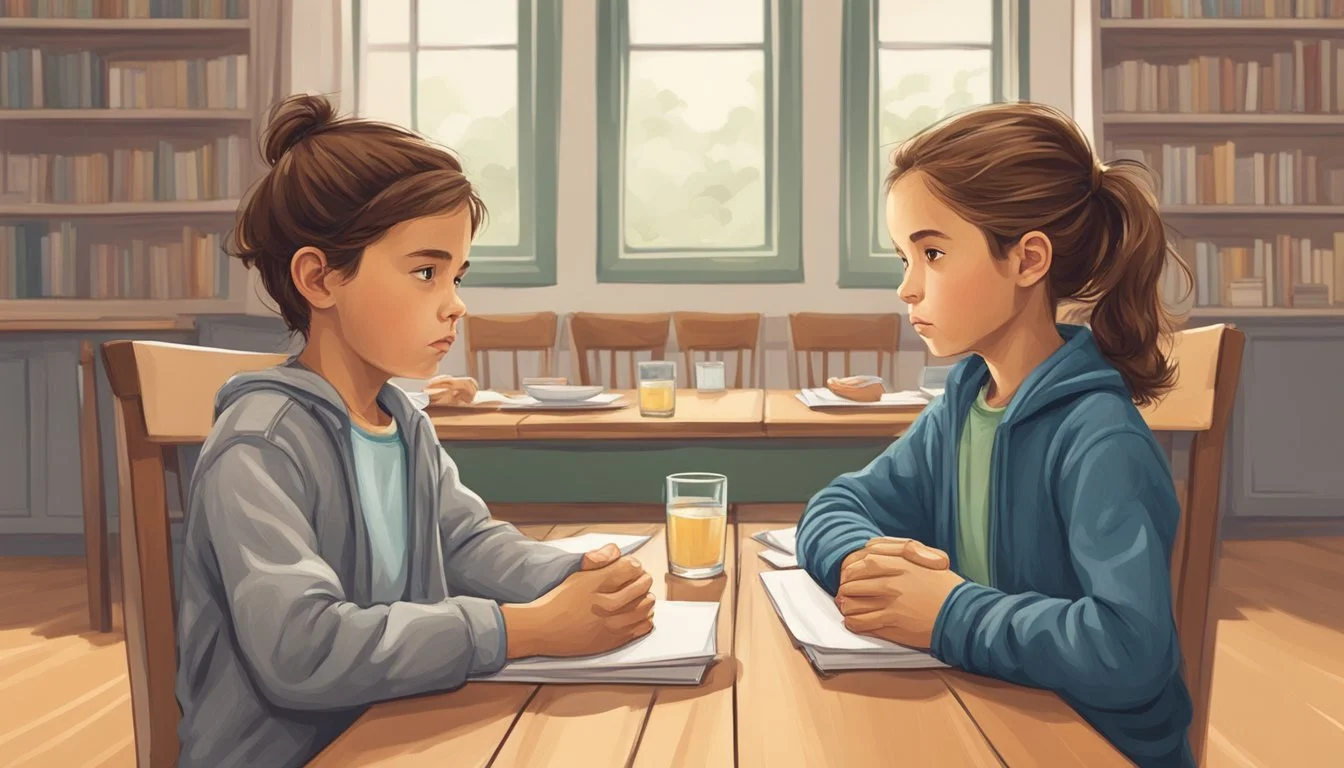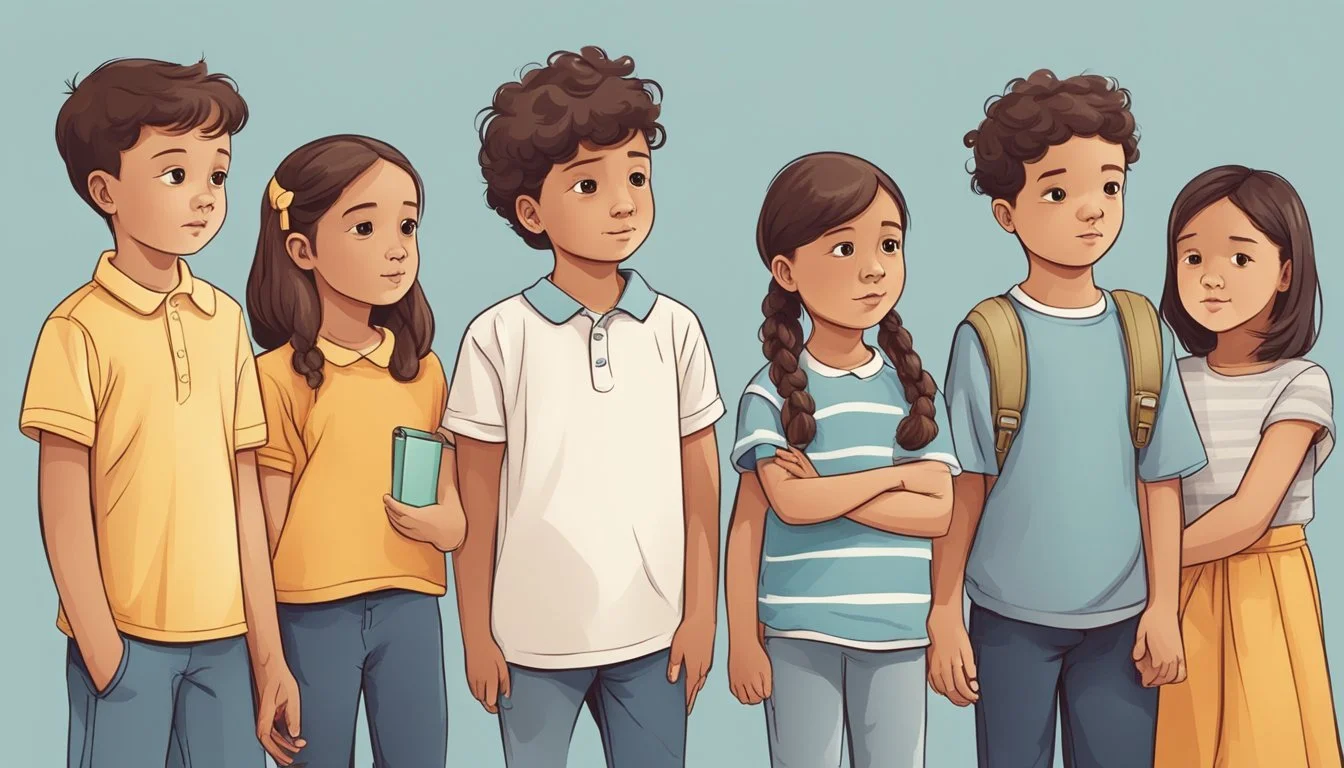7 Characteristics of Emotionally Distant Siblings
Understanding the Disconnect
Sibling relationships often have a profound impact on one’s life experiences, shaping personal development and social interactions. While some siblings share a close bond, others may find themselves emotionally distant from each other due to various factors and underlying issues. Exploring the characteristics of emotionally distant siblings can reveal common patterns and behaviors that contribute to their relationship dynamics.
Understanding these characteristics can help individuals recognize and address the emotional gaps in their own sibling relationships. By identifying these traits, it becomes possible to work towards healthier and more meaningful connections, fostering a supportive and nurturing family environment. This article will delve into the intricacies of emotionally distant sibling relationships and provide valuable insights on the subject.
1) Lack of Communication
Emotionally distant siblings often exhibit a lack of communication. This can manifest through infrequent conversations or minimal contact.
They might not share personal information or feelings, leading to a superficial relationship. Simple conversations often avoid deeper, more meaningful topics.
Misunderstandings may arise when communication is sparse. Without open dialogue, siblings may misinterpret each other's actions or intentions.
Emotional distance grows when siblings do not make an effort to communicate effectively. The relationship can become stagnant and unfulfilling.
Frequent miscommunications indicate a deeper issue. It suggests an unwillingness or inability to engage on a meaningful level.
For more insight on estrangement and communication issues, see the qualitative exploration on sibling relationships.
2) Minimal Emotional Support
Emotionally distant siblings often show minimal emotional support. This lack of support may manifest as an absence of empathy during difficult times. Siblings might avoid comforting each other or validating emotions.
This behavior can create a significant emotional gap. Without mutual emotional reinforcement, bonds can weaken, making it hard to share personal experiences. A sibling might pull away, feeling unsupported.
Emotional neglect during childhood could contribute to this dynamic. For instance, children raised in emotionally neglectful environments may struggle to connect. They might not have learned how to offer support, resulting in distant relationships as adults.
Emotional support is crucial for coping with life stressors. Warm sibling relationships can buffer against negative effects, such as bullying or parental hostility, according to a study by the APA. Emotionally distant siblings miss out on these protective benefits, impacting their overall well-being.
In some cases, this dynamic could be exacerbated by mismatched personalities. When emotional needs and expressions don't align, siblings may find it challenging to connect on a deeper level. This mismatch can perpetuate a cycle of emotional distance and minimal support.
3) Rarely Expressing Affection
Emotionally distant siblings often find it difficult to show affection. This might manifest as limited physical contact, rare verbal affirmations, or a general lack of warmth in interactions. Their communication often feels formal or superficial rather than deeply connected.
These siblings might avoid hugging, kissing, or other forms of physical touch. When they do offer compliments or kind words, it often seems obligatory rather than genuinely heartfelt. This can create an emotional gap that is hard to bridge.
Furthermore, emotionally distant siblings might also avoid discussing personal matters or sharing emotional experiences. Their conversations tend to stick to surface-level topics and may feel more like small talk.
This lack of expressed affection can lead to misunderstandings and feelings of neglect. It may leave the other sibling feeling unvalued or unloved. Over time, this emotional distance can erode the sibling bond, making it challenging to build or maintain a close relationship.
Such behavior can stem from various factors, including differences in upbringing or personality traits. In some cases, childhood emotional neglect can cause siblings to relate differently to each other as adults, as highlighted here.
4) Avoidance of Family Gatherings
Emotionally distant siblings often avoid family gatherings. They may feel uncomfortable or out of place, leading them to skip events entirely.
This avoidance can stem from a desire to evade emotional closeness. They may fear awkward interactions or conflict.
Their absence at gatherings can create tension within the family. Other members might feel hurt or confused by their absence.
In some cases, they might provide excuses for not attending. These reasons can range from work commitments to personal plans.
They might find the emotional dynamics of family gatherings overwhelming. The need to engage and connect can be exhausting.
Avoiding gatherings can further isolate them from family bonds. This behavior may contribute to feelings of detachment from the family unit.
Their pattern of avoidance can be a coping mechanism. It allows them to maintain emotional distance and self-reliance.
Understanding these motivations can help other family members respond with empathy. It can prompt a more supportive approach to their feelings and behavior.
5) Inconsistent Contact
Inconsistent contact between siblings often signals underlying emotional distance. Frequent irregularity in communication can foster misunderstandings and unresolved conflicts.
One sibling might frequently initiate contact while the other responds intermittently, creating a cycle of frustration. The inconsistency can lead to doubts about the relationship's strength and importance.
This erratic communication can be influenced by various factors, including busy schedules, geographic distance, or differing priorities. Efforts may seem one-sided, and the lack of a steady communication pattern can weaken the emotional bond.
In some cases, siblings may feel neglected or less valued, impacting their willingness to maintain contact. It also makes planning family events and gatherings more challenging, leading to fewer shared experiences.
Ultimately, the lack of consistent communication can fragment what could otherwise be a supportive and close sibling relationship. Addressing these issues involves open conversations about the importance of regular connection.
Understanding each other's expectations and finding a middle ground can help improve the consistency of contact, strengthening the bond.
6) Surface-Level Conversations
Emotionally distant siblings often engage in surface-level conversations. These interactions typically revolve around mundane topics like weather or recent sports scores. They avoid diving into personal matters or emotional subjects.
Such conversations create a safe distance, preventing vulnerability. It’s easier to focus on external topics than to risk emotional exposure. This distance becomes a habit over time.
In these exchanges, they may also talk about third parties. Discussing others can distract from their own relationship issues. This way, they can maintain a semblance of connection without genuine closeness.
These surface interactions often leave important emotional needs unmet. When siblings don't address deeper issues, it can lead to feelings of isolation. The patterns of shallow communication underscore the emotional gap between them.
7) Prioritizing Individual Lives
Emotionally distant siblings often prioritize their own careers, interests, and personal lives over maintaining a close relationship. They may invest more time and energy into their professional development or social circles than in cultivating family bonds.
Over time, this focus can lead to fewer shared experiences and decreased communication between siblings. The gap created by different life paths can make it harder for them to find common ground.
The importance of sibling relationships highlights that a lack of shared activities can contribute to emotional distance. As each sibling pursues their individual goals, the divergence can exacerbate feelings of isolation within the family.
Additionally, personal commitments such as marriage, children, or demanding jobs can further limit the time available to nurture sibling relationships. The intensity of these roles often leaves little room for reconnecting and deepening familial ties.
Ultimately, focusing solely on separate lives diminishes opportunities for meaningful interactions. While individual growth is vital, it’s important to allocate time for maintaining familial relationships to prevent emotional detachment among siblings.
Causes of Emotional Distance
Emotional distance between siblings can stem from various sources. Key factors include family dynamics, unresolved past conflicts, and inherent differences in personality.
Family Dynamics
Family dynamics play a crucial role in shaping relationships among siblings. For example, competition for parental attention or favoritism can create tensions. Children who feel overlooked might withdraw emotionally to protect themselves.
Roles assigned within the family, such as the "responsible one" or "the troublemaker," often exacerbate these feelings. Siblings may find it difficult to break free from these roles, leading to emotional distance. Furthermore, significant changes such as divorce or remarriage can disrupt previously stable relationships, fostering detachment.
Past Conflicts
Unresolved conflicts from childhood can cast long shadows over adult sibling relationships. Issues like perceived slights or hurtful comments can fester if not addressed openly. These lingering resentments often reemerge during family gatherings, reopening old wounds.
Instances of betrayal or trust breaches, whether real or perceived, contribute significantly to emotional distance. Without proper closure, siblings may find it easier to distance themselves rather than confront these painful memories. Moreover, these conflicts can sometimes be inherited from parents, continuing a cycle of estrangement.
Differences in Personality
Personality differences are another major factor contributing to emotional distance. Siblings with contrasting temperaments may struggle to find common ground. For instance, an extroverted sibling may feel frustrated with an introverted sibling's preference for solitude, leading to misunderstandings.
These disparities are often magnified as siblings grow older and develop distinct lifestyles and values. Differences in communication styles can also add to the problem. One sibling's directness might be perceived as aggression, while another's need for space could be seen as indifference. This misalignment in personality and communication styles often results in a gradual emotional drift.
By understanding these causes, individuals may gain insight into their own familial relationships and take proactive steps toward healing and reconnection.
Impact on Family Relationships
Emotionally distant siblings can profoundly affect family dynamics. These impacts manifest in communication issues, heightened emotional tensions, and potential long-term consequences on family cohesion and individual well-being.
Communication Barriers
Emotionally distant siblings often struggle with open and effective communication. This difficulty can lead to misunderstandings and a lack of transparency within the family unit. Essential information may not be shared, and significant conversations avoided. These barriers hinder the development of trust and mutual understanding. Over time, the family's ability to resolve conflicts constructively diminishes. The lack of effective communication contributes to an emotionally disconnected family environment.
Emotional Strain
The emotional distance between siblings introduces significant strain on emotional bonds. Family members may feel isolated or unsupported. Parents often find themselves trying to mediate or compensate for the lack of sibling connection, which adds to their stress. The feeling of emotional neglect from a sibling can impact self-esteem and result in lingering feelings of resentment or sadness. This strain often reverberates through other family relationships, affecting overall family harmony and happiness.
Long-Term Effects
Long-term effects of sibling emotional distance can be profound and lasting. As these individuals grow older, the lack of early emotional connectivity can lead to weakened adult sibling relationships. Families may find themselves fragmented, with less frequent contact and support among members. There's often a long-lasting impact on individual psychological well-being, including issues such as trust, attachment, and social skills. In some cases, the effects extend to future generations, where children might also experience similar relational patterns based on observed family dynamics.






